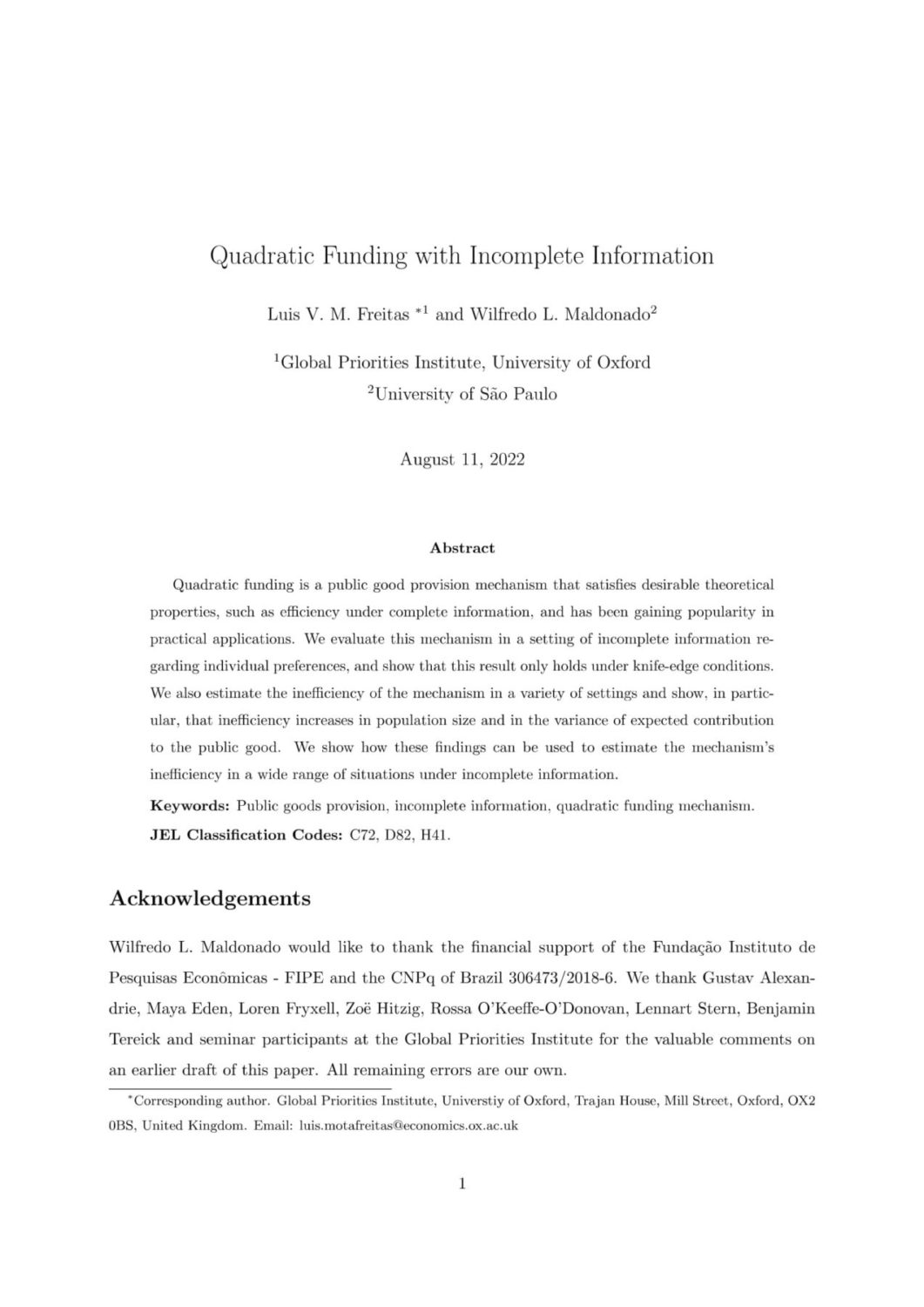Quadratic Funding with Incomplete Information
Luis V. M. Freitas (Global Priorities Institute,
University of Oxford) and Wilfredo L. Maldonado
(University of Sao Paulo)
GPI Working Paper No. 10 - 2022, published in Social Choice and Welfare
Quadratic funding is a public good provision mechanism that satisfies desirable theoretical properties, such as efficiency under complete information, and has been gaining popularity in practical applications. We evaluate this mechanism in a setting of incomplete information regarding individual preferences, and show that this result only holds under knife-edge conditions. We also estimate the inefficiency of the mechanism in a variety of settings and show, in particular, that inefficiency increases in population size and in the variance of expected contribution to the public good. We show how these findings can be used to estimate the mechanism’s inefficiency in a wide range of situations under incomplete information.
Other working papers
Longtermist institutional reform – Tyler M. John (Rutgers University) and William MacAskill (Global Priorities Institute, Oxford University)
There is a vast number of people who will live in the centuries and millennia to come. Even if homo sapiens survives merely as long as a typical species, we have hundreds of thousands of years ahead of us. And our future potential could be much greater than that again: it will be hundreds of millions of years until the Earth is sterilized by the expansion of the Sun, and many trillions of years before the last stars die out. …
A bargaining-theoretic approach to moral uncertainty – Owen Cotton-Barratt (Future of Humanity Institute, Oxford University), Hilary Greaves (Global Priorities Institute, Oxford University)
This paper explores a new approach to the problem of decision under relevant moral uncertainty. We treat the case of an agent making decisions in the face of moral uncertainty on the model of bargaining theory, as if the decision-making process were one of bargaining among different internal parts of the agent, with different parts committed to different moral theories. The resulting approach contrasts interestingly with the extant “maximise expected choiceworthiness”…
The freedom of future people – Andreas T Schmidt (University of Groningen)
What happens to liberal political philosophy, if we consider not only the freedom of present but also future people? In this article, I explore the case for long-term liberalism: freedom should be a central goal, and we should often be particularly concerned with effects on long-term future distributions of freedom. I provide three arguments. First, liberals should be long-term liberals: liberal arguments to value freedom give us reason to be (particularly) concerned with future freedom…

